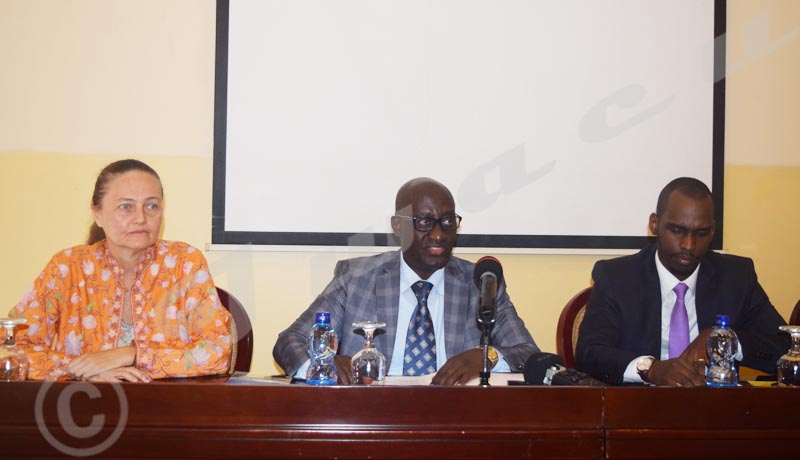The UN Economic Commission for Africa and Trademark East Africa are undertaking a project to support Burundi’s integration within the African Continental Free Trade Area-AfCTA. Stakeholders have met to share views during the Burundi National Forum on AfCTA that took place in Bujumbura, this Thursday October 24.

Minister Jean Marie Niyokindi (in the middle): “Burundi expects tangible benefits from the AfCTA”
The African Continental Trade Free Area-AfCTA will focus on investment protocols, competition policies and intellectual property rights. Christian Nibasumba, Country Representative of Trademark East Africa has indicated the AfCTA aims at liberalizing trade through the removal of tariffs and non-tariff barriers on goods, liberalizing the service sectors and allowing the free movement of labor and capital. “AfCTA will improve the trade environment in Burundi as Trademark East African is eager to increase commerce within Africa”, he said.
Audace Ndayizeye, Chairman of Burundi Federal Chamber of Commerce, Trade and Industry –CFCIB pleaded for the government facilitation. “Not only should stakeholders in AfCTA open borders, but also they should facilitate private sector economic operators in their daily activities”, he said adding that the AfCTA will allow economic operators to share experience and establish a networking collaboration.
Jean Marie Niyokindi, Minister of Trade, Industry and Tourism has said Burundi is in the ratification phase of the Free Trade Agreement. “We know that trade is a key pillar of a country’s development and the majority of foreign currencies are from exports”, he said adding that Burundi exports towards Africa have significantly reduced in 2015-2016.
For him, the country’s poor performance in diversification has generally been noted with a high concentration of low value-added exports of services, agricultural and mineral products. “Manufactured exports are almost inexistent,” he said adding that Burundi expects tangible benefits from the AfCTA as it will accelerate the industrialization process in the country”, concluded the Minister.
The African Continental Free Trade Area covers 55 African countries, among them 54 have already ratified the agreement.



















 IWACU Open Data
IWACU Open Data

